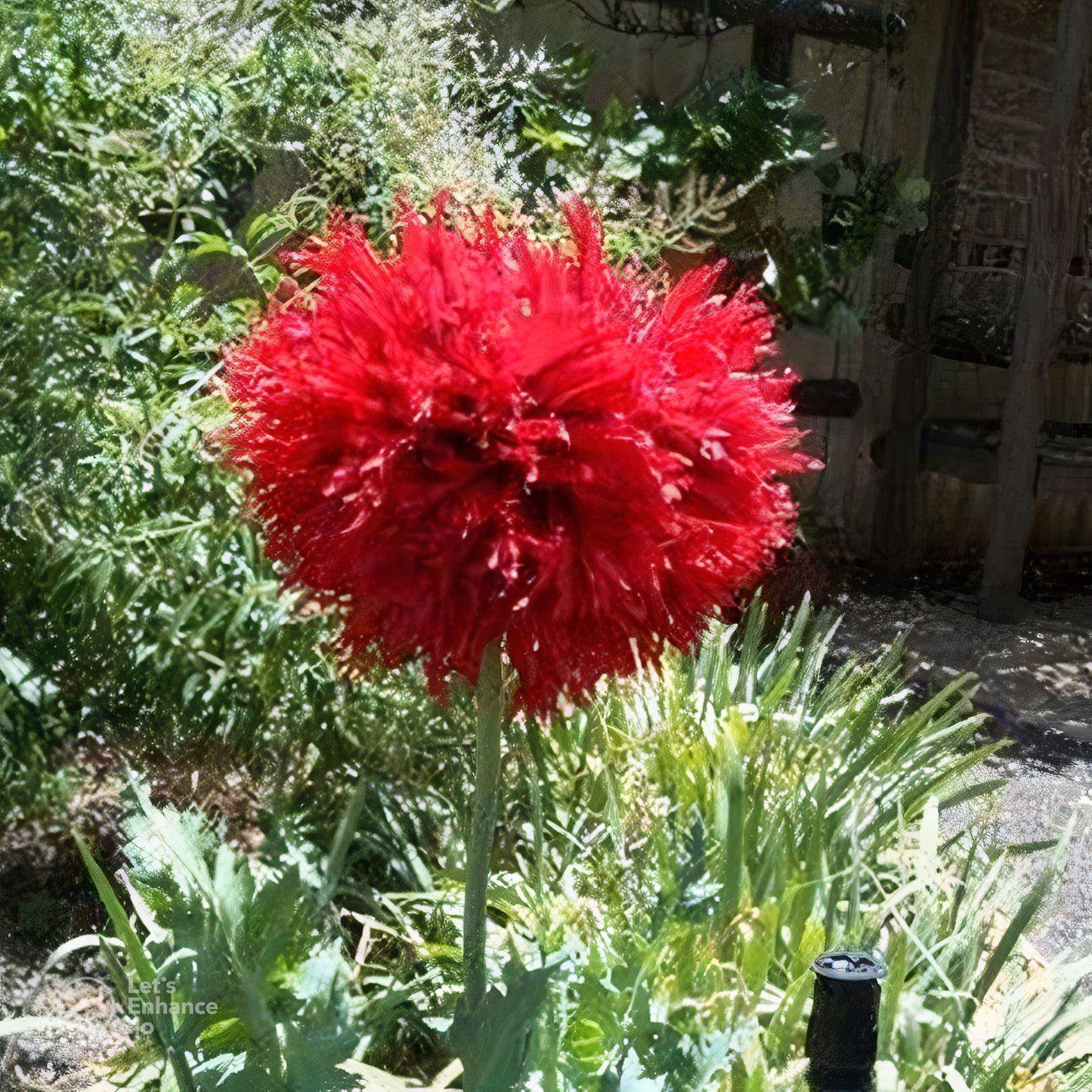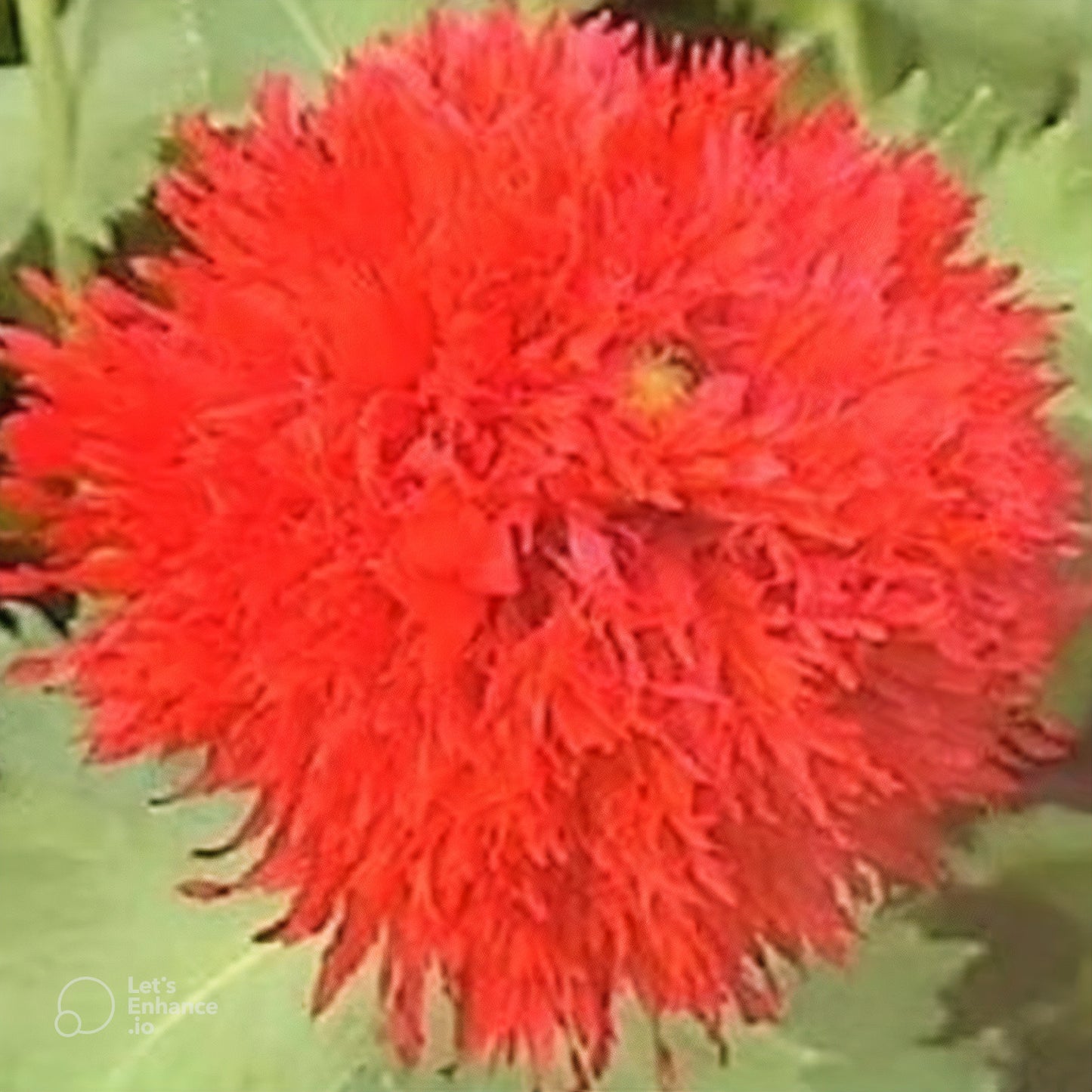- Historical context: Peony poppies, also known as Papaver paeoniflorum, are a variety of the common poppy (Papaver somniferum). They have been cultivated for centuries for their ornamental beauty.
- Geographical origination: The common poppy is native to the Mediterranean region, but peony poppies have been cultivated in various parts of Europe and Asia.
- Relevant cultural significance: Poppies have been symbols of sleep, peace, and death in various cultures. The peony poppy, with its lush, double blooms, is particularly valued in ornamental gardening.
- Time period of discovery: The exact time period of the discovery of peony poppies is unclear, but they have been cultivated for ornamental purposes for several centuries.
- Original habitat: Peony poppies thrive in temperate climates and are often found in gardens and cultivated fields.
- Notable historical uses: While the common poppy has been used for medicinal purposes, the peony poppy is primarily grown for its aesthetic appeal.
- Ideal temperature range: Peony poppies prefer temperatures between 60-70°F (15-21°C).
- Soil type: They thrive in well-drained, fertile soil with a neutral to slightly alkaline pH.
- Sunlight requirements: Full sun is ideal for peony poppies, although they can tolerate partial shade.
- Watering needs: Moderate watering is required. The soil should be kept moist but not waterlogged.
- Planting season: Sow seeds in early spring or fall. In cooler climates, spring planting is preferred.
- Germination time: Seeds typically germinate within 10-14 days.
- Growth cycle duration: Peony poppies have an annual growth cycle, blooming in late spring to early summer.
- Common pests and diseases: Aphids, slugs, and powdery mildew are common issues. Regular monitoring and appropriate treatments can help manage these problems.
- Companion planting advice: Peony poppies grow well with other sun-loving plants like lavender, marigolds, and cosmos.
- Common challenges and solutions: Overwatering can lead to root rot. Ensure proper drainage and avoid waterlogged soil. Pests like aphids can be controlled with insecticidal soap or natural predators like ladybugs.
- Nutritional values: Peony poppy seeds are not typically consumed, so they do not have notable nutritional values.
- Health benefits: While the seeds themselves are not used medicinally, the common poppy has been used in traditional medicine for its sedative properties.
- Culinary uses: Peony poppy seeds are not commonly used in culinary applications.
- Medicinal uses: The peony poppy itself is not used medicinally, but its relative, the common poppy, has been used for its analgesic and sedative properties.
- Other unique advantages: Ornamental beauty: Peony poppies are highly valued for their large, double blooms that resemble peonies, making them a popular choice for gardens and floral arrangements.






